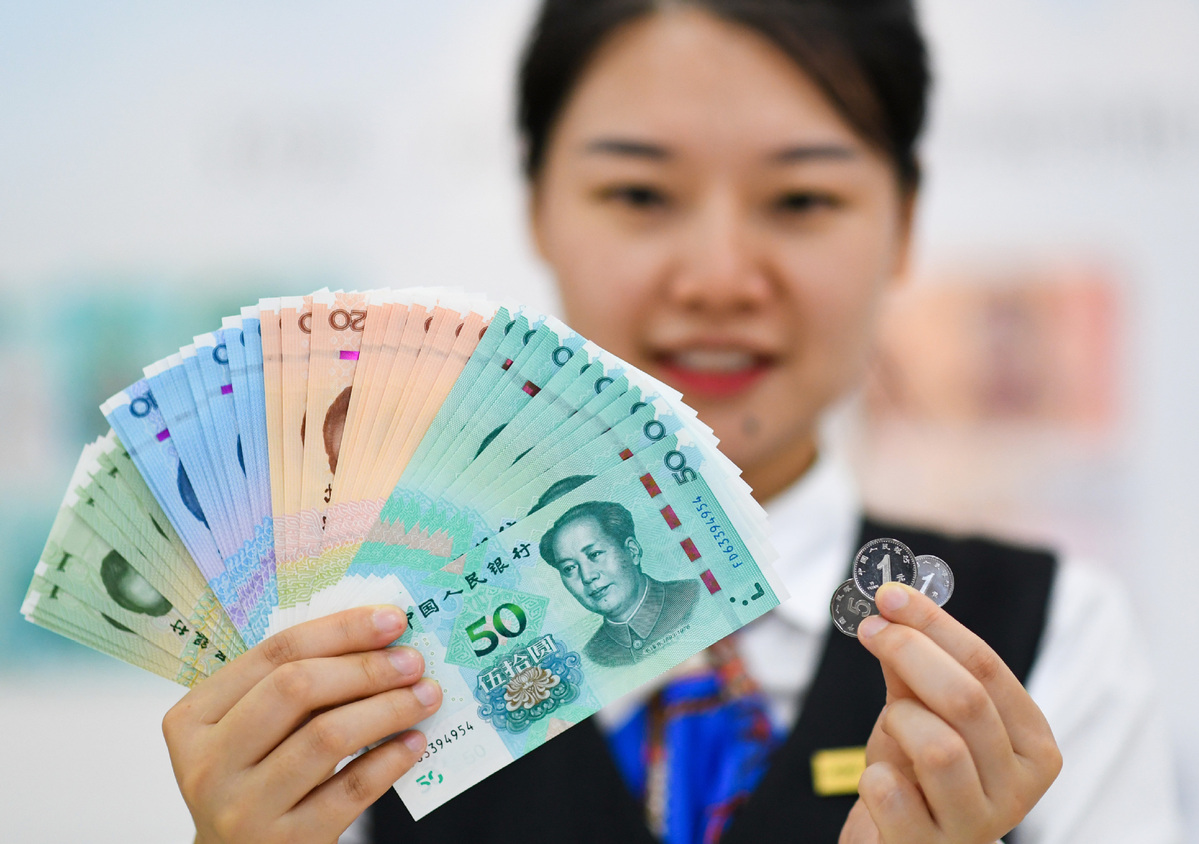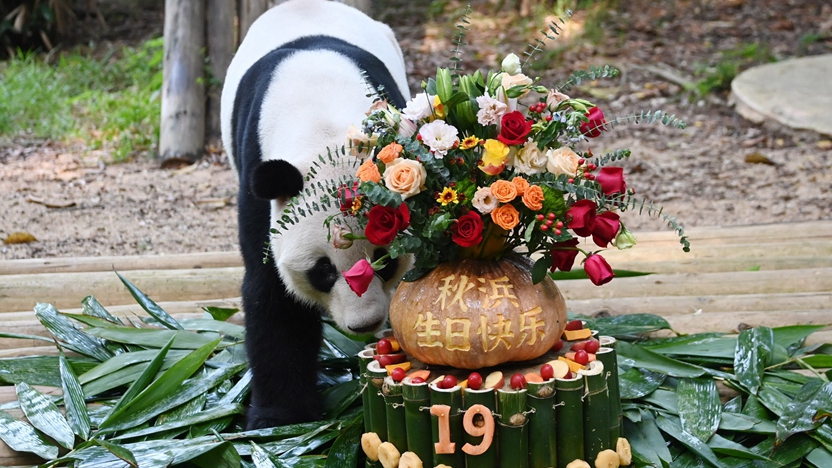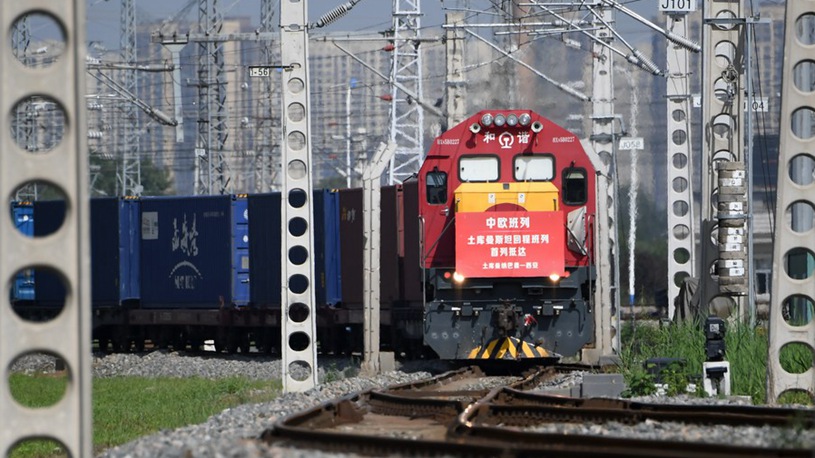Interest rate cut feasible tool to spur growth

A woman shows banknotes and coins included in the 2019 edition of the fifth series of the renminbi. [Photo/Xinhua]
While a number of central banks are expected to announce big tightening steps this week to beat inflation, China may continue to go in the opposite direction by tamping down interest rates in the coming months to spur growth, experts said on Tuesday.
Underlining stable economic growth as the ultimate shield against capital outflow risks, they said measures like cutting benchmark interest rates and required reserves of banks remain feasible tools for China's central bank in order to bolster domestic demand and buffer against global economic downward pressures.
They commented as the United States Federal Reserve is poised to continue its sharpest rate hike cycle in decades by raising its target policy rate by 75 or even 100 basis points on Wednesday to curb inflation. The Fed had announced two rate hikes of 75 basis points in June and July.
Moreover, the Bank of England is likely to deliver another rate hike on Thursday of 50 basis points or more. The central banks of Indonesia, Norway and Switzerland, among others, also might announce rate hikes this week.
By contrast, benchmark interest rates in China have decreased moderately this year. While remaining unchanged on Tuesday, the over-five-year loan prime rate-on which many lenders base their mortgage rates-has slid by 35 basis points this year to 4.3 percent, said the People's Bank of China, the country's central bank.
The one-year LPR came in at 3.65 percent on Tuesday, unchanged from the previous month and down by 15 basis points since the beginning of the year, the central bank said.
Experts said the ongoing overseas tightening is unlikely to stop China's monetary policy from staying accommodative for economic recovery, given that the basis of recovery needs to be consolidated while stable economic growth remains the fundamental buffer against shocks brought by the global tightening trend.
Wen Bin, chief economist at China Minsheng Bank, said it is likely that the over-five-year LPR will decline in the fourth quarter. As slower export growth and lukewarm property sector recovery exert a drag on growth, lowering financing costs to boost investment in infrastructure and manufacturing and stabilize the property sector may become necessary.
He said it could be sensible to further reduce the reserve requirement ratio-the proportion of money that banks must hold as reserves-to reduce banks' funding costs and motivate them to charge lower lending rates.
Wen's words echoed the central bank's pledge in an article last week to continue bringing the effects of LPR reform and transmission into better play and encourage financial institutions to reduce loan interest rates.
Nevertheless, some experts said China should be cautious in regard to further tapping the country's monetary policy space, as easing measures pose the risk of weakening the renminbi if they fail to spur economic growth effectively amid overseas central banks' fast tightening.
While remaining stable against a basket of currencies, the onshore exchange rate of the renminbi weakened against the US dollar by about 10 percent this year to about 7.01 on Tuesday.
Yang Haiping, a researcher at the Central University of Finance and Economics' Institute of Securities and Futures, said it is advisable for China to remain prudent toward reducing interest rates, as the country's liquidity condition remains ample and the efficiency of interest rate cuts in boosting long-term lending might have declined.
With money supply now relatively ample, China should pay more attention to reforms to nurture structural growth drivers, such as city clusters, to power growth, said Liu Shijin, deputy director of the Committee on Economic Affairs of the National Committee of the Chinese People's Political Consultative Conference, the nation's top political advisory body.
Photos
Related Stories
Copyright © 2022 People's Daily Online. All Rights Reserved.









